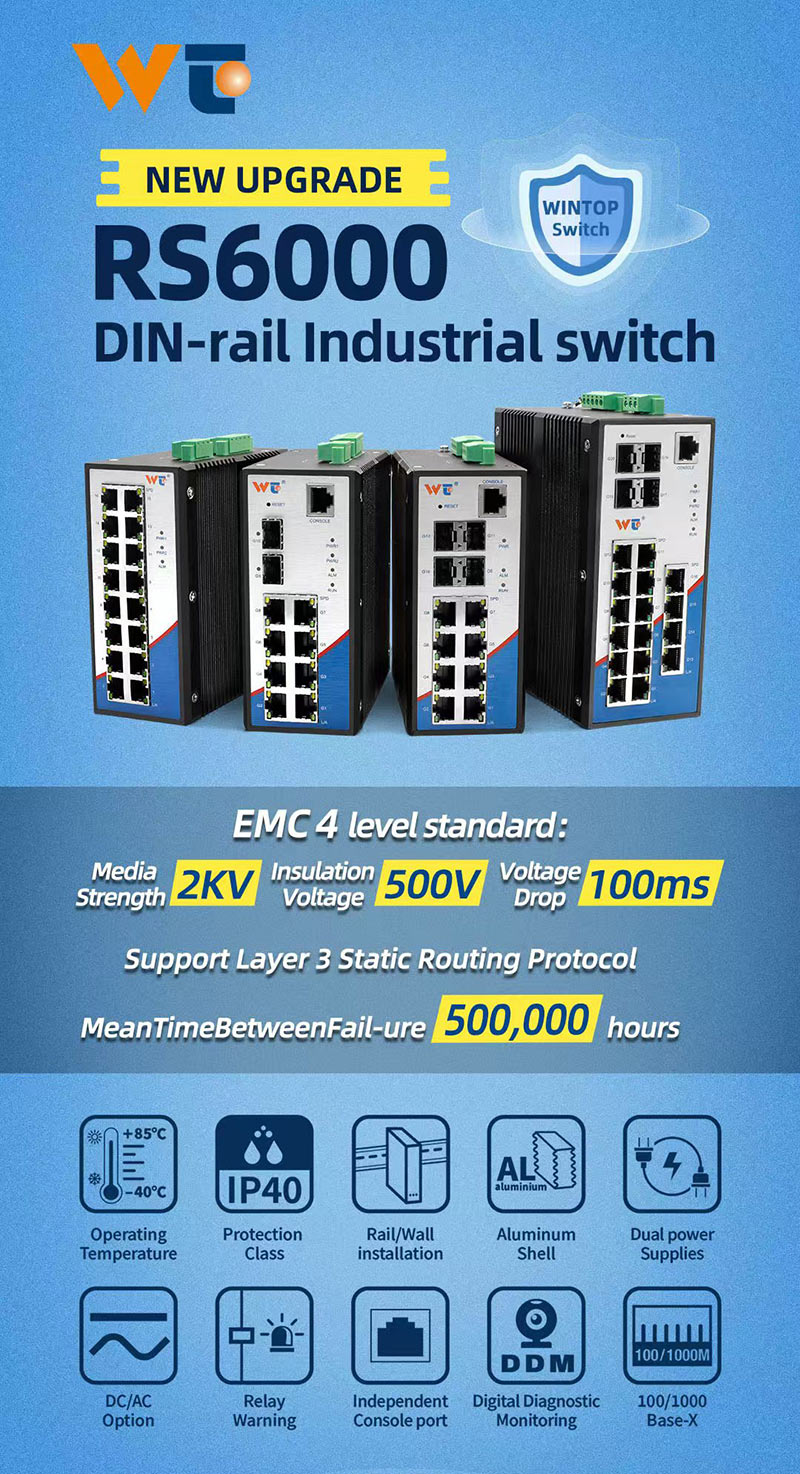Revolutionizing Toll Station Operations: The Role of Industrial Switches in ETC Systems
In an age where time efficiency and seamless travel are paramount, the implementation of Electronic Toll Collection (ETC) systems stands as a game-changer. For millions of daily commuters, the convenience of breezing through toll stations without stopping is not just a luxury but a necessity. At the heart of this smooth operation lies advanced technology, with industrial switches playing a pivotal role. Understanding how to manage convenient passage through toll stations using ETC, and how industrial switches offer efficient data processing and stable communication, is crucial for modern infrastructure.
The Importance of Efficient Toll Collection
Toll booths have historically been a significant bottleneck for traffic flow, often resulting in long queues and delays. Traditional toll collection methods not only waste precious time but also contribute to fuel consumption and pollution due to idling vehicles. ETC systems alleviate these problems by allowing vehicles to pass through toll stations without stopping, using wireless communication to automatically deduct toll charges.
The effectiveness of ETC systems is heavily dependent on the underlying technology that supports real-time data processing and communication. This is where industrial switches come into play. These robust devices ensure that the data from numerous vehicles is processed swiftly and accurately, maintaining a seamless flow of traffic and enhancing the overall efficiency of toll collection.
Industrial Switches: The Backbone of ETC Systems
Industrial switches are specialized network devices designed to operate in harsh environments. They are crucial in ETC systems for several reasons:
- Reliable Data Transmission: Industrial switches facilitate the uninterrupted flow of data between toll collection devices and central systems. Their ability to handle high data volumes ensures that toll transactions are processed without delay.
- Durability and Stability: Unlike regular switches, industrial switches are built to withstand extreme temperatures, humidity, and vibrations. This durability ensures they function reliably in various environmental conditions, which is essential for outdoor toll stations.
- Scalability: As traffic volumes increase and toll systems expand, industrial switches can be easily scaled to accommodate more devices and higher data throughput. This scalability is vital for future-proofing ETC systems.
Case Study: Transforming a Busy Highway Toll Station
Consider the example of a busy highway toll station experiencing frequent traffic jams and long wait times. By integrating an ETC system supported by industrial switches, the toll station can transform its operations.
Before the upgrade, vehicles would queue up, each stopping to pay manually, resulting in significant delays. After implementing ETC, vehicles equipped with transponders can pass through dedicated lanes without stopping. The industrial switches manage the data transmission between the transponders, toll collection points, and the central processing system.
Within weeks of implementation, the toll station notices a dramatic reduction in congestion. The real-time data processing capabilities of the industrial switches mean that toll transactions are almost instantaneous, and the system can handle thousands of vehicles per hour without hitches. This not only improves the user experience but also reduces emissions and fuel consumption, contributing to environmental sustainability.
The Role of Stable Communication in ETC Systems
Stable communication is paramount in the context of ETC systems. Any disruption in data transmission can lead to errors in toll collection, vehicle delays, and potential revenue loss. Industrial switches ensure stable communication by providing:
- Redundant Pathways: These switches often have multiple pathways for data transmission, ensuring that if one path fails, another can take over without interruption.
- High Bandwidth: Capable of handling large amounts of data, industrial switches prevent bottlenecks in the network, maintaining smooth and fast communication.
- Low Latency: Quick data transfer between devices ensures that toll transactions are processed in real-time, which is crucial for the efficiency of ETC systems.
Enhancing Security in Toll Collection
Security is another critical aspect where industrial switches shine. Toll collection systems are susceptible to various cyber threats, including data breaches and unauthorized access. Industrial switches enhance security through:
- Advanced Encryption: Protecting data as it travels between devices and central systems.
- Access Control: Ensuring that only authorized devices and personnel can access the network.
- Regular Firmware Updates: Keeping the system protected against the latest threats.
Looking Ahead: The Future of ETC Systems
The future of ETC systems is bright, with continuous advancements in technology promising even more efficient and reliable toll collection. Industrial switches will undoubtedly remain at the core of these systems, providing the necessary foundation for robust data processing and communication.
Innovations such as the integration of artificial intelligence (AI) and machine learning (ML) into ETC systems could further enhance traffic management and toll collection accuracy. Industrial switches capable of supporting these advanced technologies will be crucial in realizing the full potential of modern toll infrastructure.
Conclusion: The Path to Seamless Travel
In conclusion, the integration of ETC systems supported by industrial switches represents a significant leap forward in toll station management. By ensuring efficient data processing and stable communication, industrial switches enable a seamless travel experience for millions of commuters, reducing congestion, emissions, and travel time. As we look to the future, the continued evolution of these technologies promises even greater improvements, making our journeys faster, safer, and more efficient. The commitment to enhancing toll station operations through advanced technology is not just an investment in infrastructure but an investment in the quality of life for everyone on the road.
